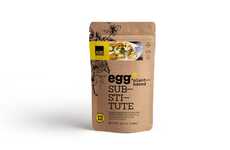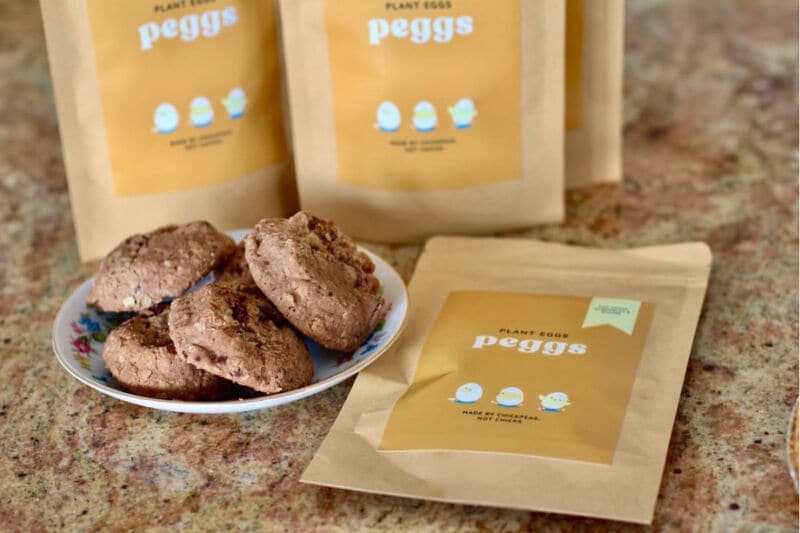
Peggs are Sustainable Eggs Made by "Chickpeas Not Chicks"
Laura McQuarrie — January 27, 2021 — Lifestyle
References: peggs.us & foodbusinessnews.net
Peggs is a powdered egg that can be used as a vegan egg substitute in cooking and baking. The "sustainable egg" is made with ingredients like chickpea, flax, potato, spices and a few other ingredients that help to mimic the look of eggs when combined with water.
According to Grace O’Brien, the Stanford engineering and design graduate who developed the plant-based egg alternative, "Peggs use 90% less land, water, and energy to produce and contribute to 50% fewer greenhouse gas emissions." While there are some egg alternatives that can be purchased in liquid form, Peggs was intentionally created as a shelf-stable, powdered product to minimize waste. Additionally, the product is made with clean ingredients that people will easily recognize, unlike many alternative proteins that are lab-created with unfamiliar additions.
According to Grace O’Brien, the Stanford engineering and design graduate who developed the plant-based egg alternative, "Peggs use 90% less land, water, and energy to produce and contribute to 50% fewer greenhouse gas emissions." While there are some egg alternatives that can be purchased in liquid form, Peggs was intentionally created as a shelf-stable, powdered product to minimize waste. Additionally, the product is made with clean ingredients that people will easily recognize, unlike many alternative proteins that are lab-created with unfamiliar additions.
Trend Themes
1. Plant-based Powdered Foods - Creating more powdered plant-based food options can offer an alternative to animal-based products, while reducing waste and increasing convenience.
2. Sustainable Food Alternatives - Developing sustainable food alternatives, like Peggs, can help reduce environmental impact and offer consumers healthier, cleaner options.
3. Clean Label Ingredients - Demand for products made with clean, recognizable ingredients is on the rise, opening opportunities for companies to innovate and develop new products that meet this demand.
Industry Implications
1. Food and Beverage - The food and beverage industry can leverage plant-based and sustainable food trends to offer innovative products that meet consumer demand for healthier and more environmentally friendly options.
2. Agriculture - Reducing the environmental impact of agriculture by developing plant-based alternatives can be an opportunity for companies to innovate and meet the increasing demand for sustainable food products.
3. Retail - Retailers can leverage consumer demand for plant-based and clean label products to offer innovative options and gain a competitive edge in the market.
6.1
Score
Popularity
Activity
Freshness
























